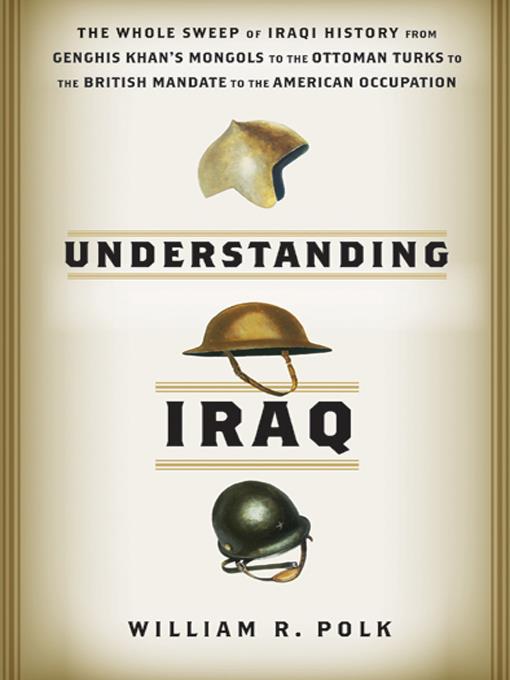
Understanding Iraq
کتاب های مرتبط
- اطلاعات
- نقد و بررسی
- دیدگاه کاربران
نقد و بررسی

Starred review from March 21, 2005
In this tightly crafted book, even the introductory note on words and spellings makes for a lesson in misunderstandings. Not only have occupying armies, officials and journalists not known the local language, Polk observes, but because Arabic is grounded in religious and historical texts, outsiders have missed the allusions that inform Iraqis' perceptions. Polk's history of ignorance reads like a portent. As the events in his history of Iraq from the Sumerians to the U.S. war of 2003 unfold in chronological order, they read like historical echoes of Iraq's present. The effect is haunting, and Polk's knack for understatement—he describes the recent American tactic of dismissing the Iraqi military but allowing them to keep their weapons as "maladroit"—only adds to the feeling of dread. But Polk, a scholar of the Middle East and former adviser to John F. Kennedy, stops just short of a fatalistic view of history. In one of the clearest prescriptions for success in Iraq yet to emerge, Polk calls for "American political courage" in allowing Iraqis to re-establish neighborhood associations to run social affairs and provide security. These associations not only inspire more genuine political participation than voting or constitutions, he says, but are a natural part of Iraqi tradition and culture. Unlike current American policy, which, he says, inadvertently invokes the post-WWI British occupation by focusing on rulers and symbols and neglecting the citizens, Polk calls attention to the reality of human relationships. With this war's death toll already at over 100,000 people, Polk notes that virtually every Iraqi has lost a parent, child, spouse, cousin, friend, colleague or neighbor. To achieve true peace in Iraq, the U.S., he argues, must acknowledge the brutalizing effect of those deaths and rebuild the trust that he thinks has been eroding for centuries. Agent, Sterling Lord Literistic.

























دیدگاه کاربران